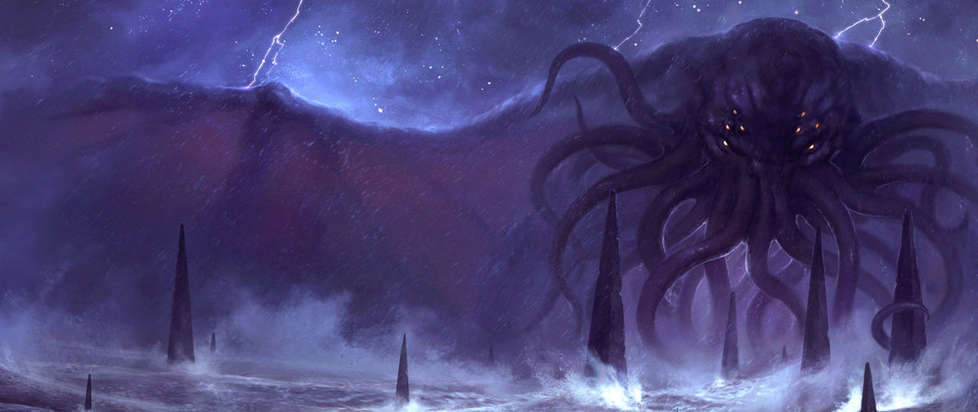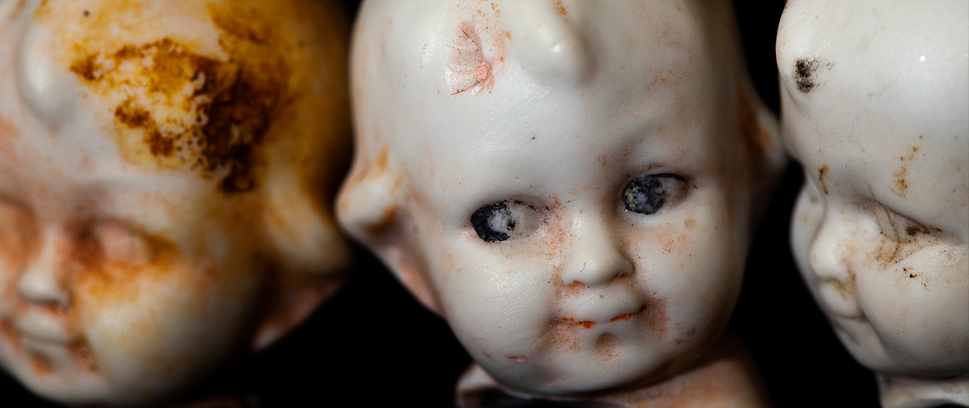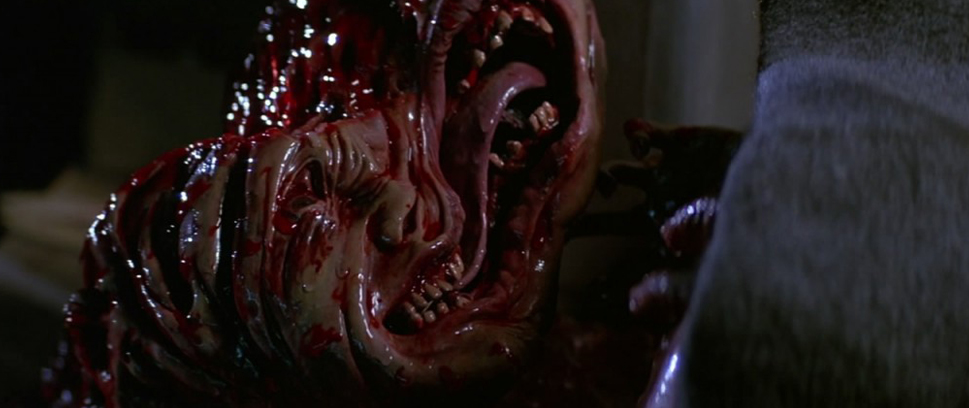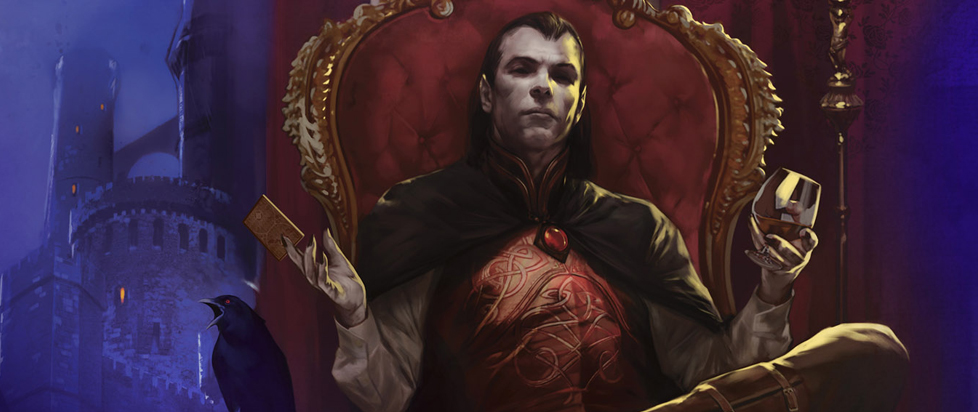
Strahd vs. Nyarlathotep
This is a reprint of the letter from the editor in Unwinnable Monthly Issue Seventy-Eight, the Bad Luck issue. You can buy Issue Seventy-Eight now, or purchase a one-month subscription to make sure you never miss an issue!
———
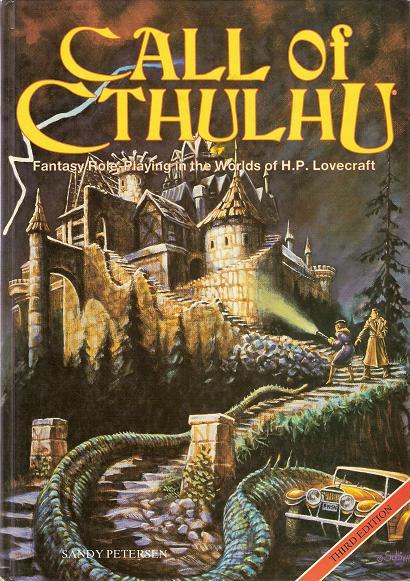 A strange thing happened when we sat down to play Dungeons & Dragons 5E two weekends ago.
A strange thing happened when we sat down to play Dungeons & Dragons 5E two weekends ago.
Our regular game, using the Basic and Expert rules from the mid-80s, had collapsed under the weight of busy schedules and a crummy module, so I had at a month of D&D-free living. Meanwhile, I’ve aggressively scheduled my Call of Cthulhu game. We ramped up from every other week to weekly, even if that meant playing shorter session on work nights. It is a brisk pace.
We’re five sessions into the famed Masks of Nyarlathotep campaign, after six sessions of unconnected scenarios. It took a while to get used to the rules, but when we did, the quality of roleplaying was high. The characters are all quirky and interesting; the players are engaged with the mystery. Much of a session is given over to conversation, both within the party and with NPCs. There hasn’t been a serious combat in four games. I think last week we rolled dice maybe half a dozen times. If that.
I’ve been in roleplaying focused groups before, but this is something different. In those older games, the plot was central to play in. Here, the plot (though engaging) feels secondary. These folks seem to actually want to just sit around and chat about things in-character. That is essentially what they did in our last session. And they loved it.
I don’t want to call that weird, because it is fun and weird seems to denote a sort of negativity, but it is kind of weird in the uncharted territory sense.
Anyway. Fifth Edition D&D.
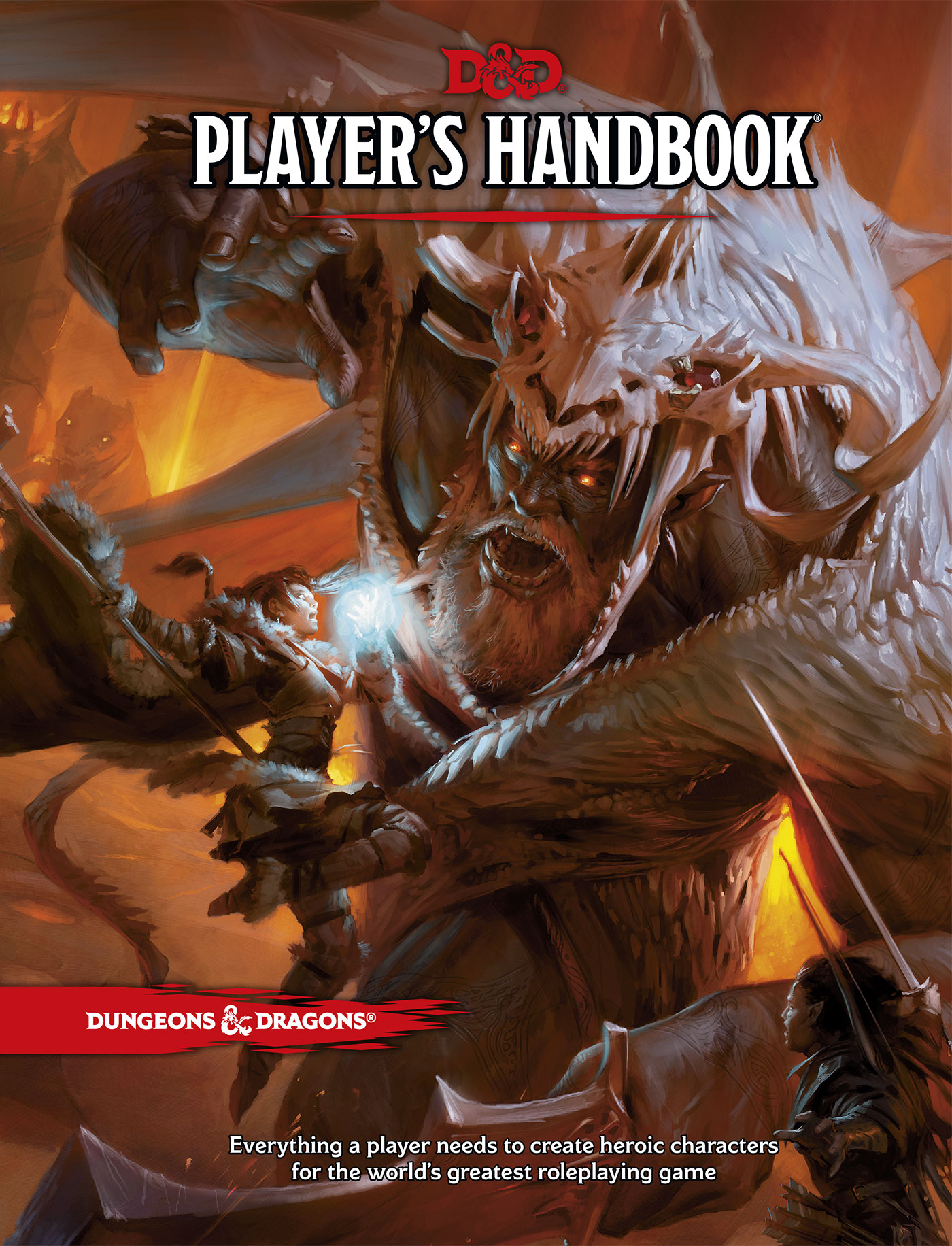 Hambone is running the Curse of Strahd for us. The idea is that we’re starting at Level One, as kids. Like Monster Squad. To that end, my druid is a weird orphan living on the outskirts of town who enjoys collecting worms in jars. We’ve got a paladin, who is kind of a jock, a gnome barbarian, who is kind of a bully, and we have a bard who…I guess is the D&D equivalent of a band nerd.
Hambone is running the Curse of Strahd for us. The idea is that we’re starting at Level One, as kids. Like Monster Squad. To that end, my druid is a weird orphan living on the outskirts of town who enjoys collecting worms in jars. We’ve got a paladin, who is kind of a jock, a gnome barbarian, who is kind of a bully, and we have a bard who…I guess is the D&D equivalent of a band nerd.
It is a funny shtick and while we were just farting around town, it wasn’t too different from the Call of Cthulhu game. We made it up as we went, improvising our way through the school day in our spooky little town. When the game slipped into combat, however, it was D&D like any other edition. Everyone took their turn, dice were rolled and encounters were resolved in an orderly fashion. Math happened. Rules were consulted.
It all felt…constrictive.
Which is not to say bad. It was still fun, but having been out of the D&D world for a brief time, playing another system, I realized for the first time just how rigid and orderly the game is. No wonder chaotic evil always seemed like the worst of the worst – this is a game that fetishizes charts and rules indexes. Perhaps most importantly, there is no other way the game can be – the meat of the rules concern tactical combat and the vast majority of your character’s statistics concern combat. They are literally defined by battle. Characters fight in a D&D game because there is nothing else for them to do. Their other skills aren’t defined and so those facets of the world are left murky and unexplored.
In contrast, the characters in Call of Cthulhu are normal people in a recognizable world (currently New York of the 1920s). Because they are frail (most have less than 15 hit points) and combat often results in serious injury and death, violence is avoided. The result is a very fluid, improvisational open world game that uses rules only when necessary.
I am not saying one or the other is better (though Shawn Dillon, my Eye of the Beerholder co-host, can’t stand the looseness of Call of Cthulhu). I have great love for both. Rather, I can’t help but wonder how other games work. I don’t have strong memories of how GURPs, Pendragon, Paranoia, Star Wars, Stormbringer, Tales from the Floating Vagabond and other games we played in the past felt; how the gears of their systems fit together with their narratives. I want to revisit all of them. And play more besides. What are the multi-dimensional worlds of Rifts and Torg like? Why do people always rave about RuneQuest and Thieves’ World? Is Vampire: The Masquerade as silly as I always assumed?
I often fret about how many books I will be able to read before I die.
Now I have to worry about how many roleplaying games I will be able to play.
* * *
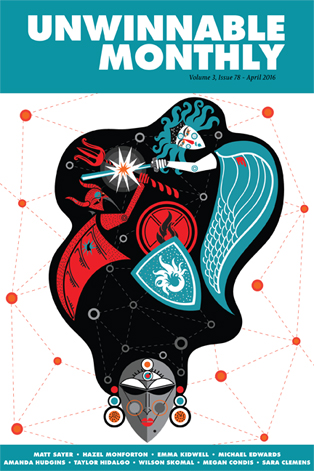 First, soak up the beauty of Wajeeha Abbasi’s cover illustration.
First, soak up the beauty of Wajeeha Abbasi’s cover illustration.
Isn’t it great?
As you might have guessed, this month’s theme is Good & Evil and, as usual, the contributors surprised me. Instead of musing on the polar extremes or the clashes between them, we have essays that delve into the murky grey tones of morality and hypocrisy.
We start off with a bit of farcical fiction by Matt Sayer. Hazel Monforton delves into the morals of Dishonored. Emma Kidwell moves past the colonialism and the mass murder to find more down to earth reasons that Nathan Drake is an asshole. Michael Edwards looks at the Daredevil Season 2’s Punisher and wonders why it took so long to get his twisted justice right on the screen. Amanda Hudgins turns to an earlier, more ridiculous vigilante – Charles Bronson of the Death Wish movies – and ponders their continued, disturbing relevance. Taylor Hidalgo looks at the bad things videogames make us do in the service of being good. Wilson Skomal holds up John Carpenter’s The Thing to argue that the best kind of hero is no hero at all. Megan Condis descends into hell to compare the punishments of Dante’s Inferno and the videogame Dante’s Inferno. Finally, Sara Clemens compares letters from her Animal Crossing mom with those from her real one.
Our theme stories ran long this month, so we held of on a new Byte Club. Instead, in Variation, you’ll find Declan Taggart tussling with his (possibly drug-dealing) neighbor, Jeremiah Cheney driving cross country in American Truck Simulator, Argun Ulgen wrestling with Fantasy Football and the first of Brian Taylor’s monthly crossword puzzles.
And, as usual, our crack pool of columnists has plenty to say in Thoughts. You should really stop reading this and just dive in.
See you in May!
Stu Horvath
Jersey City, New Jersey
April 15, 2016

